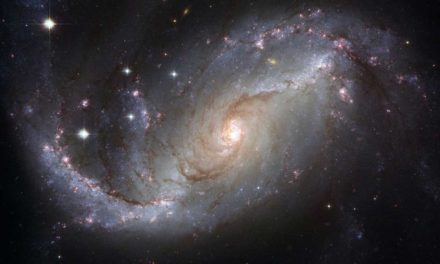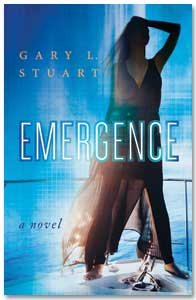Madame Wikipedia, an ethical dilemma herself, gives us a historical context in which ethical paradoxes, moral dilemmas, hard choices, and victimhood lurk. She, as is her wont, begins her dialogue philosophically, thoroughly, and tediously. “In philosophy, ethical dilemmas, also called ethical paradoxes or moral dilemmas, are situations in which an agent stands under two (or more) conflicting moral requirements, none of which overrides the other. A closely related definition characterizes ethical dilemmas as situations in which every available choice is wrong. The term is also used in a wider sense in everyday language to refer to ethical conflicts that may be resolvable, to psychologically difficult choices or to other types of difficult ethical problems.”[1]
She is cautious, insisting we debate whether there are any. And she warns us against conflating epistemic dilemmas, risking a false impression to the agent of an unresolvable conflict and ontological dilemmas. So, we won’t venture there. False impressions seem to define extremely conservative cults, gangs, militias, and anti-everything agents of depression hanging around national elections like stink bugs.
Immoral dilemmas urge proponents to choose immoral over moral standards to advance the pleasure of those unfit to advance morality. They care little about truth because it rarely advances the needs of narcissism, misogynism, fascism, or Trumpism. The central point is choosing an ethical solution when faced with a dilemma is acting without compromising moral principles or values.
The most common dilemma politicians face is advancing self-interest in ways that defeat cohesion and public trust. For some, political office is transactional. It advances their personal goals at the expense of public trust.
Iran Contra was a 1986 presidential scandal. “During the Reagan administration, senior administration officials secretly facilitated the sale of arms to Iran, the subject of an arms embargo. Several individuals in Ronald Reagan’s administration were implicated in the Iran-Contra Scandal. Basically, money that had been obtained through selling arms to Iran was given secretly to the revolutionary Contras in Nicaragua. Other than helping the Contras, the hope was that by selling the weapons to Iran, terrorists would be more willing to give up hostages. This scandal resulted in major Congressional hearings.”[2]
The Lewinsky scandal was a political sex scandal emerging in 1998, from a sexual relationship between United States President Bill Clinton and a 22-year-old White House intern, Monica Lewinsky. “Perhaps no other scandal in presidential history can equal the Monica Lewinsky affair for pure sensationalism and absurdity. Bill Clinton was implicated in a couple of scandals, the most significant for his presidency was the Monica Lewinsky affair. Lewinsky was a White House staffer with whom Clinton had an intimate relationship. He had previously denied this while giving a deposition in another case which resulted in a vote to impeach him by the House of Representatives in 1998. The Senate did not vote to remove him from office. But the event did mar his presidency as he joined Andrew Johnson as only the second president to be impeached.”
The Watergate scandal was, until 2016, the biggest scandal for sheer impact on the U.S. presidency. It destroyed Richard M. Nixon. “In June 1972 he orchestrated a break-in at the Democratic National Committee headquarters at the Watergate office complex in Washington, D.C. And the Nixon administration attempted a cover-up of its involvement. The scandal eventually led to the resignation of Richard Nixon, on August 9, 1974, the only resignation of a U.S. President. The scandal also resulted in the indictment, trial, conviction, and incarceration of 43 people, including dozens of Nixon’s top administration officials.”
The Trump scandals are mountains compared to the mole hills of his predecessors, Grover Cleveland, Reagan, and Clinton. “President Trump became the first American president ever to be impeached twice. First, in December 2019, he was impeached on two articles related to his alleged attempt to pressure Ukraine to interfere in the 2020 presidential election. He was impeached by the House but acquitted by the Senate. In January 2021, only weeks before his term expired, he was impeached a second time, this time on a charge of incitement of insurrection for his role in attempting to overturn the results of the 2020 election, leading to the January 6 Capitol riots.
Trump’s 2020 presidential election ended with another scandal. Following his loss in the election, rather than conceding and working on the usual peaceful transition of power to the next administration, Trump and his allies filed dozens of lawsuits and made numerous speeches claiming election fraud and trying to overturn the results of the election, particularly in swing states that broke for Biden.[3]
While individual presidencies dealt with ethical dilemmas in different ways, the larger ethical dilemma is the presidency itself. It sets impeachment against scandal and seems insolvable. “From the debates of the Founders in Philadelphia in 1787 to today’s congressional impeachment inquiry aimed at President Donald Trump, the American government has never resolved the constitutional dilemma. How can the presidency be made powerful enough at the same time that it is made genuinely accountable? The dilemma has only gotten more troublesome in modern times, with the rise of deep partisan polarization, the steady growth in presidential powers, and the spreading notion of a unitary Executive Branch. After throwing off the yoke of English royal rule, and with it the idea that ‘the king can do no wrong,’ and then growing deeply uneasy over the failed replacement with a Confederation of states governed by Congress alone, America reached for a government that would actually work yet still would answer to, and be checked by, the sovereign people.”[4]
Another constitutional dilemma for presidents is war. It seems unsolvable. The Constitution says presidents need the freedom to defend the nation, but the nation needs to be reassured that presidents aren’t destroying the personal freedoms the Constitution guarantees. “The fear of the potential abuse of presidential power is a legitimate concern. This problem is particularly important in protracted wars. The longer the war, the more desperate the country becomes to win. States become more authoritarian. They centralize decision-making. They curb liberties. They increase taxation. All in an effort to generate the power to win. In the process, they may become a garrison state, destroying the civil society the state was created to protect, and, ironically, making the state less powerful. Slave states can’t generate as much will to win as free markets and open societies.”[5]
Another presidential, so constitutional dilemma arises out of the debate over executive privilege. That is the right of the president and high-level White House officials to withhold information from Congress, the judiciary, and ultimately the public. Customarily, presidents invoke executive privilege, or they direct members of their cabinet and staff to do so. As an Article II-based power, only the president has this authority.”[6] Obama rarely touched it. Trump revels in it. He apparently thinks even his thoughts are privileged. And he apparently thinks that he can define executive by simply thinking about it.[7]
As the sun sets on the Trump era, the ethical dilemmas rise. “Marked by conflicts of interest and ethical lapses, the first year of the Trump presidency fueled debates about our system of federal ethics system in Washington and across the nation. . . Congress can take to address to prevent self-dealing by the country’s top leaders. It identifies three main solutions towards eliminating most pressing gaps in the country’s federal ethics system: closing the presidential loophole, bolstering disclosure requirements for high-ranking officials, and strengthening ethics enforcement.[8]
At the end of the day, as the Brits often say, the defense against a transactional presidential is informed citizens. They are democracy’s best defense. They can resolve ethical dilemmas at elections by voting. It could be that simple.
[1] https://en.wikipedia.org/wiki/Ethical_dilemma
[2] https://www.wonderslist.com/10-biggest-us-presidential-scandals/
[3] https://www.thoughtco.com/trump-scandals-4142784
[4] https://constitutioncenter.org/blog/the-presidency-impeachment-and-an-enduring-dilemma
[5] https://www.heritage.org/defense/commentary/war-time-presidential-power-presents-constitutional-dilemma
[6] https://www.judiciary.senate.gov/imo/media/doc/Rozell%20-%20Testimony.pdf
[7] https://www.foxnews.com/politics/trump-hannity-presidents-can-declassify-documents-thinking-about-it
[8] https://www.brennancenter.org/our-work/policy-solutions/strengthening-presidential-ethics-law

I am an author and a part-time lawyer with a focus on ethics and professional discipline. I teach creative writing and ethics to law students at Arizona State University. Read my bio.
If you have an important story you want told, you can commission me to write it for you. Learn how.






 I am an author and a part-time lawyer with a focus on ethics and professional discipline. I teach creative writing and ethics to law students at Arizona State University.
I am an author and a part-time lawyer with a focus on ethics and professional discipline. I teach creative writing and ethics to law students at Arizona State University.  My latest novel is Emergence, the sequel to Let’s Disappear.
My latest novel is Emergence, the sequel to Let’s Disappear.  If you have an important story you want told, you can commission me to write it for you.
If you have an important story you want told, you can commission me to write it for you.